The skin is the largest organ of your body, and it's also one of the most important. The health of your skin impacts everything from how you look to how healthy you feel. If you're experiencing dryness, itching, or redness, then you've probably got a problem with your skin barrier—the outermost layer of skin that keeps moisture in and germs out. This guide will help you understand skin barrier function and how to repair skin barrier damage.
What is skin barrier?
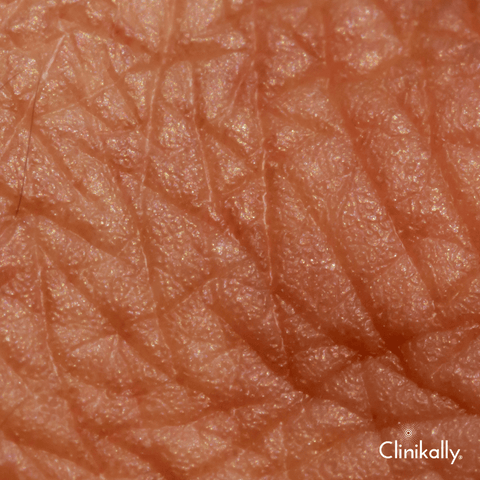
The skin is made up of three layers
-
The epidermis or outer thin layer
-
The dermis, or thick middle layer
-
The subcutaneous fatty layer
The epidermis and its upper layer, the stratum corneum, is your body's first line of defense and acts as a skin barrier. Its purpose is to protect the body from infection, moisture loss, and physical injury. Under a microscope, the stratum corneum consists of tiny cells called corneocytes that act as bricks and are tightly glued together by ceramides, cholesterol, and fatty acids. This layer also contains a protein called filaggrin which makes natural moisturizing factors (NMF) for the skin.
A healthy barrier will keep your body hydrated by preventing excessive water loss through evaporation. In addition to preserving hydration levels within its confines, this outermost layer also shields us against germs like bacteria or viruses by creating an extra layer between them.
Quick facts about skin barrier
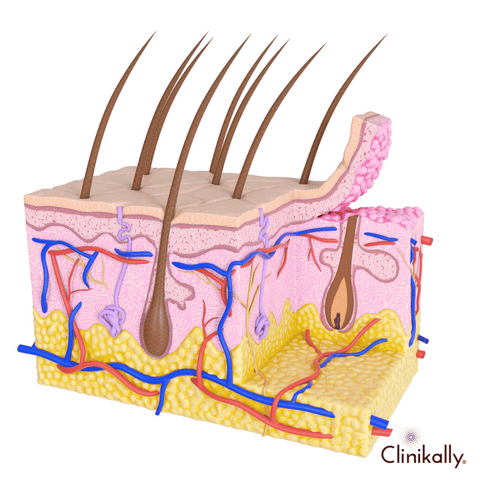
Here are some quick facts about the skin barrier:
-
Your skin barrier is slightly acidic. It helps create a kind of buffer against the growth of harmful bacteria, viruses, and fungi that can damage your skin and lead to infections. The typical skin barrier pH ranges from 4.1 to 5.8.
-
The skin is the largest part of your skin, and the average adult has 21 square feet of skin that contain over 11 miles of blood vessels.
-
The thickest skin is found on your feet, and the thinnest area of your skin are your eyelids.
-
The skin renews itself every 28 days and sheds about 9 pounds of dead skin every year.
Importance of healthy skin barrier function
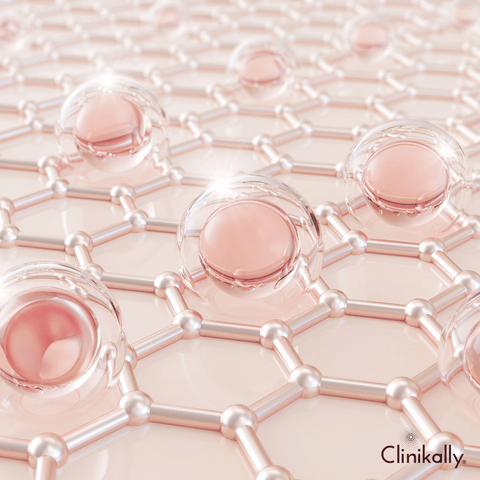
Your skin barrier is one of the most essential parts of your body, as it protects you from infection and environmental damage. Your skin barrier also helps to keep your skin hydrated, moisturized, and healthy. Your skin barrier has several functions it protects you from:
-
Pollution
-
Ultraviolet (UV) rays
-
Irritation, inflammation, and infection
-
Dehydration
-
Toxins
What is skin barrier damage?
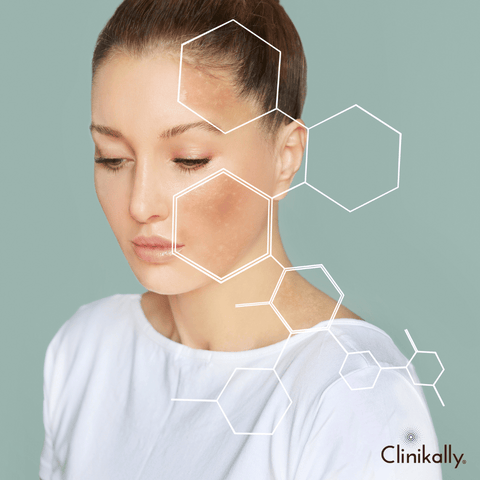
The skin barrier, also called the moisture barrier or acid mantle, has two functions: keep the good stuff in and the bad stuff out. The skin barrier protects the internal body from pollution, harmful chemicals, and ultraviolet radiation from sun exposure. It also helps keep the body's moisture level intact; however, when the outermost layer of the epidermis (the stratum corneum) doesn't contain enough moisture, the skin will lose elasticity and appear dry, rough and flaky. It will prevent it from maintaining an appropriate skin barrier leaving the skin exposed and vulnerable to damage from external and environmental sources
5 signs of skin barrier damage
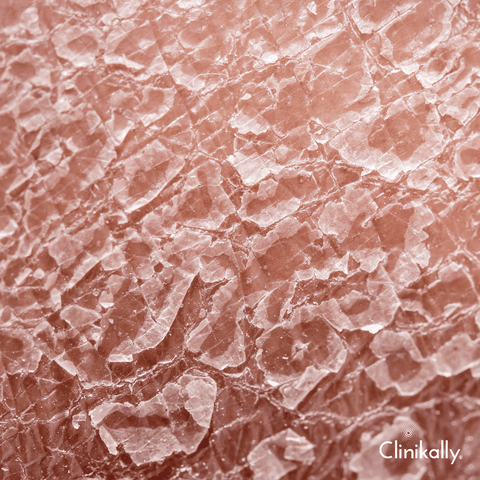
Disruption of the main functions of the skin barrier shows itself in numerous ways, including:
-
Lack of skin elasticity
-
Itchy, dry skin
-
Wrinkles
-
Discolouration
-
Thinning of the epidermal layer
What causes skin barrier damage?
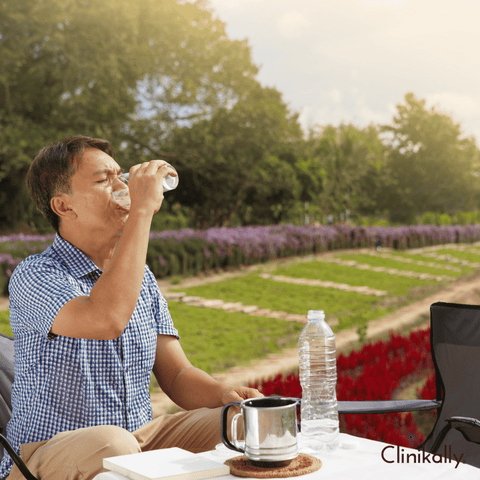
Many things impact the skin barrier, including:
-
A dry, humid environment
-
Hot or cold weather
-
Allergens, irritants and pollutants
-
Too much sun exposure
-
Nutrient light diet
-
Overuse of exfoliating acid
-
Certain medications like steroid
-
Stress
-
Ageing
How to repair skin barrier damage
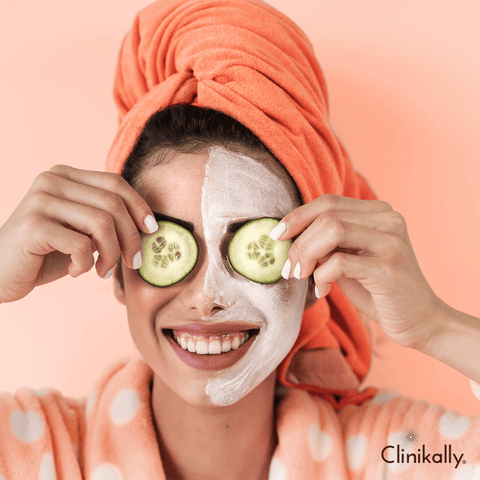
The first step is to take good care of your skin, which will help keep it soft, strong and healthy. Here are some steps to repair skin barrier damage
-
Moisturise with ceramides, ceramides are the building blocks of your skin's outermost layer and help maintain a healthy skin barrier. They also play a role in preventing water loss and hydrating the skin by attracting water molecules to themselves.
-
Moisturise and hydrate with a Hyaluronic acid serum, Niacinamide serum, or lactic acid for additional nourishment and hydration that will help improve barrier function over time (and perhaps even quicker if you have an acute condition).
Skincare tips for skin barrier repair
Given the importance of maintaining your skin barrier, what can you do to keep them healthy and functional? Some dermatologist-recommended skincare tips will help in skin barrier damage repair:
Do skin barrier-repairing creams work?
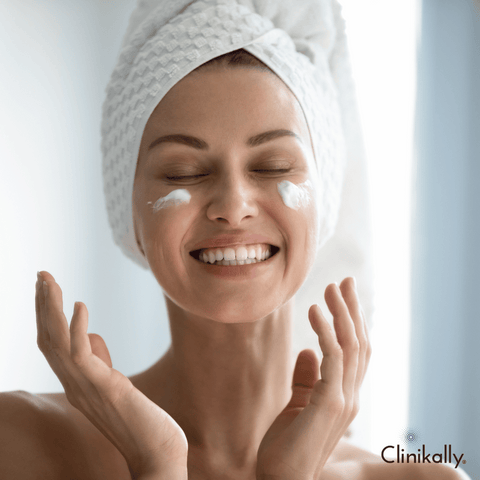
Barrier-repairing creams maintain and protect the skin's physical barrier and prevent the skin from drying out. Barrier creams help to prevent transepidermal water loss and skin breakdown by providing topical barriers to the skin. They act as a shield against potential irritants by forming a protective layer over the surface of your skin.
The function of barrier repair creams are
-
Reducing friction and irritation
-
Retaining moisture and suppleness
-
Softening dry skin
-
Protecting from chemicals and environmental insults
-
Sealing cracks or fissures on the skin
How to use skin barrier repair creams and serums
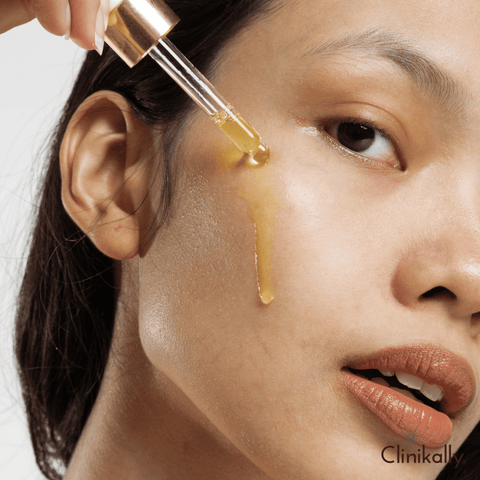
Dermatologists usually recommend applying your skin barrier cream last as any other product you apply will not penetrate the skin. You should apply the skin barrier cream every 40 to 72 hours in your daytime routine or at night over your serum to give an intense hydration effect. Certain products work well with skin barrier creams like anti-aging creams or peptides for your skin.
Best skin barrier-repairing ingredients
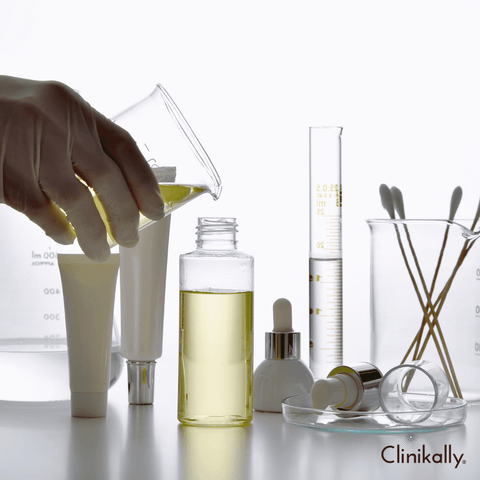
Look for these ingredients in formulations when choosing your skin barrier cream to restore and maintain the skin barrier
-
Ceramides
-
Hyaluronic Acid
-
Niacinamide
-
Glycerine
-
Oat Beta Glucan
-
Allantoin
-
Panthenol
-
Ethyl Linoleate
Get a healthy skin barrier with effective skincare!

A resilient skin barrier is your secret to good skin and providing plump, glowing, healthy skin. As the skin barrier is the first line of defense against bacteria and external aggressors, it's essential to maintain and restore the damaged skin barrier.
A compromised skin barrier is possible to fix with the help of expert advice. You can now book an online dermatologist consultation on Clinikally and consult the best dermatologists in India who will help to breakdown what your skin barrier is and how to heal it, along with the best products to try.
Repair your skin barrier with expert advice!
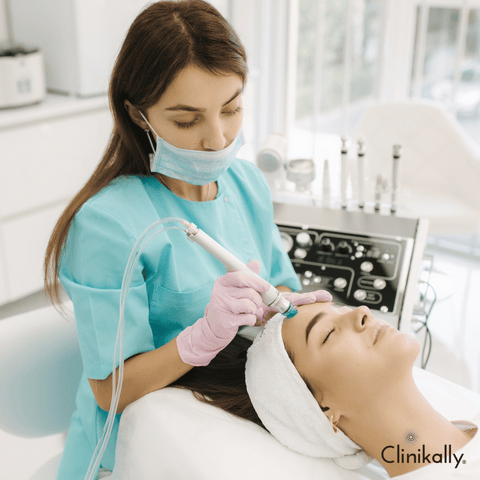
The skin barrier must be repaired to preserve healthy, vibrant skin. Gentle cleansing, moisturise regularly, avoiding harsh products, protection from UV rays, using barrier repairing ingredients, avoiding over-exfoliation, staying hydrated, considering skin barrier repair treatments, healthy lifestyle choices, and patience are some expert tips on how to repair your skin barrier. Before making major changes to your skincare routine or trying new products, perform a patch test and consult with a dermatologist, especially if you have sensitive skin or any existing skin disorders. They can provide you personalised advise and offer products or treatments that are appropriate for your skin type and issues.
Preventive Measures for Skin Barrier Health
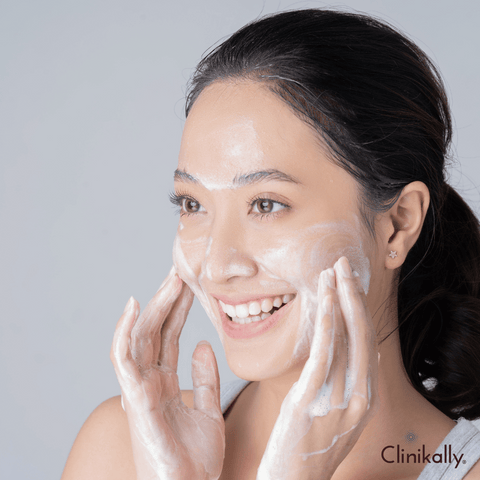
The general health of the skin depends on maintaining a healthy skin barrier. The following precautions can help preserve and strengthen your skin barrier:
-
Gentle Cleansing: Make use of a gentle, soap-free, fragrance-free cleanser. When cleansing your face, avoid using hot water and instead use lukewarm water. Excessive cleaning might remove natural oils and damage the skin's barrier.
-
Moisturise Regularly: Apply a moisturiser that is appropriate for your skin type and issues. To help retain hydration and strengthen the skin barrier, look for components like ceramides, hyaluronic acid, glycerin, and shea butter.
-
Sun Protection: Apply a broad-spectrum sunscreen with SPF 30 or higher to your skin every day, even on cloudy days, to protect it from dangerous UV radiation. UV radiation can cause skin barrier damage, resulting in premature ageing and other skin problems.
-
Healthy Diet: Consume a healthy diet high in antioxidants, vitamins (particularly A, C, and E), and vital fatty acids. These nutrients promote skin health from the inside out.
-
Stay Hydrated: Drink enough water throughout the day to keep your skin hydrated. Internal hydration is vital for good skin.
-
Avoid Harsh Products: Avoid products that contain alcohol, perfumes, sulphates, or harsh chemicals that can irritate or damage the skin barrier.
-
Limit Exfoliation: Exfoliating is useful for removing dead skin cells, but excessive exfoliation might harm the skin barrier. Exfoliate only 1-2 times each week using light exfoliants.
-
Humidify Dry Environments: If you live in a dry area or spend time in low-humidity situations, use a humidifier to provide moisture to the air. This helps to keep your skin from losing too much moisture.
-
Manage Stress: Chronic stress can have a harmful influence on skin health. To support general well-being, including skin health, use stress-reduction practises such as meditation, yoga, or deep breathing exercises.
-
Regular Dermatologist Visits: Schedule regular dermatologist visits to evaluate your skin's health, correct any concerns, and receive personalised guidance on how to maintain a healthy skin barrier.
When it comes to skincare, remember that consistency is everything. Establishing a moderate and consistent skincare routine tailored to your skin type and issues can help to keep your skin barrier healthy. If you have specific skin conditions or concerns, a dermatologist can offer personalised advice and recommendations.
Daily habits for maintaining skin barrier integrity
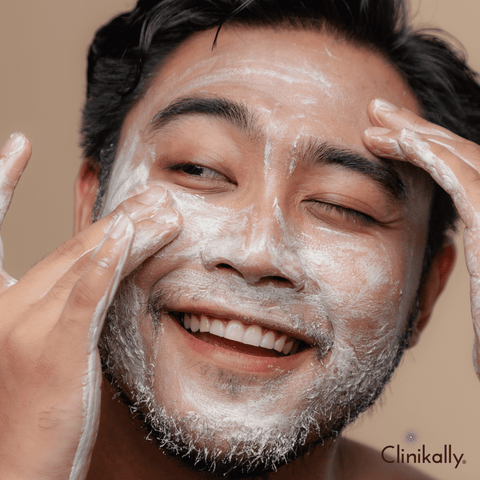
Maintaining the integrity of the skin barrier is critical for healthy, beautiful skin. Here are some daily routines you may implement to strengthen and maintain your skin barrier:
-
Gentle Cleansing: Use a gentle, non-stripping cleanser that is appropriate for your skin type. Wash your face with lukewarm water to avoid stripping natural oils and weakening the skin barrier. Using a gentle towel, gently pat dry your skin.
-
Moisturise: While your skin is still damp, apply a suitable moisturiser right away after cleansing. Look for moisturisers that contain ceramides, hyaluronic acid, glycerin, or squalane to help reinforce the skin barrier and lock in moisture.
-
Sun protection: Use a broad-spectrum sunscreen with an SPF of at least 30 every day, even on cloudy days. UV rays can cause skin barrier damage, resulting in premature ageing and other skin problems.
-
Avoid Harsh Products: Choose skincare products (cleansers, serums, and creams) that are free of alcohol, fragrances, sulphates, and other harsh chemicals that can irritate or disrupt the skin barrier.
-
Stay Hydrated: Drink plenty of water throughout the day to keep your body hydrated. Hydrated skin is more resistant to damage and promotes a healthy skin barrier.
-
Healthy Eating: Follow a well-balanced diet that is high in fruits, vegetables, lean proteins, and good fats. The skin barrier is strengthened and skin health is supported by nutrients such as omega-3 fatty acids, vitamins A, C, and E.
-
Humidify Dry Environments: Use a humidifier to add moisture to the air if you live in a dry climate or spend time in areas with low humidity. This helps to keep your skin from losing too much moisture.
-
Protect from Environmental Aggressors: Wear appropriate clothing, scarves, or use protective creams to protect your skin from harsh weather conditions (extreme cold, wind).
-
Avoid Over-Exfoliation: To avoid damaging the skin barrier, limit your weekly exfoliation to one or two times using mild exfoliants.
-
Control Your Stress: Extended periods of stress can harm your skin. Engage in stress-relieving activities such as meditation, yoga, or deep breathing exercises to promote overall well-being, including skin barrier integrity.
-
Quality Sleep: Getting enough sleep each night is essential for skin repair and rejuvenation. Aim for 7-9 hours of quality sleep per night.
When it comes to keeping a healthy skin barrier, consistency is essential. Make your skincare routine unique to your skin type and concerns, and see a dermatologist for customised advice and recommendations. Also, be patient and give these practises time to have an impact on your skin's health and barrier function.
Dietary influences on skin health

Diet has a significant impact on skin health. Here are some dietary factors that can affect your skin's health and appearance:
-
Antioxidants: Antioxidant-rich foods such as fruits (berries, oranges), vegetables (spinach, kale, carrots), and nuts (almonds, walnuts) aid in the fight against oxidative stress caused by free radicals. Antioxidants protect skin cells from damage, resulting in a more youthful appearance.
-
Omega-3 Fatty Acids: Found in fatty fish (salmon, mackerel), flaxseeds, chia seeds, and walnuts, omega-3 fatty acids help maintain skin integrity, reduce inflammation, and keep the skin moisturised, resulting in a suppler and more radiant appearance.
-
Vitamin C: Found in bell peppers, citrus fruits, and strawberries, vitamin C promotes the formation of collagen, which is necessary for the elasticity of skin. Almonds, sunflower seeds, and spinach are rich in vitamin E, which functions as an antioxidant to shield skin cells from harm.
-
Good Fats: Including good fats in your diet from nuts, avocados, and olive oil will help keep your skin supple and moisturised.
-
Hydration: It is important to drink enough water to keep your skin hydrated. Consuming foods high in water, such as celery, cucumbers, and watermelon, can also help you stay hydrated overall, even though fluids are the primary source of hydration.
-
Protein: Lean proteins, found in foods like fish, poultry, beans, and legumes, are essential for the synthesis of collagen, which gives your skin its structure and firmness.
-
Restrict Sugar and Processed Foods: Eating too much sugar and foods with a high glycemic index can worsen skin conditions like acne and ageing by increasing inflammation.
-
Collagen Boosting Foods: Including foods like bone broth, chicken skin, and collagen peptides can potentially support the body's natural collagen production, contributing to skin elasticity and hydration.
-
Green Tea: Green tea, which is high in antioxidants and anti-inflammatory properties, can help protect the skin and promote overall skin health.
-
Probiotics: Consuming probiotic-rich foods such as yoghurt, kefir, and fermented vegetables can improve gut health, potentially alleviating acne and eczema.
While these dietary factors can have an impact on skin health, individual responses may differ. Maintaining a balanced diet is crucial, as is including a range of nutrient-rich foods. For individualised guidance based on your unique dietary requirements and skin concerns, you should also think about speaking with a registered dietitian or other healthcare providers. A balanced diet should also be combined with good skincare practises and lifestyle choices to achieve the best possible skin health.
Identifying and Addressing Environmental Skin Stressors

It is critical to identify and manage environmental skin irritants to preserve skin health. Environmental variables can have a big impact on the skin, causing problems such as dryness, inflammation, premature ageing, and more. Here are some of the most prevalent environmental skin stressors and how to deal with them:
-
Sun Exposure (UV Radiation): Use broad-spectrum sunscreen with SPF 30 or higher daily, even on cloudy days. Wear protective clothing, hats, and sunglasses when exposed to direct sunlight. Seek shade and avoid sun exposure during peak hours (usually between 10 AM to 4 PM).
-
Pollution: To eliminate impurities and makeup, properly cleanse your skin. Use antioxidant-rich skincare products to combat free radicals created by pollution. To remove pollutant particles that can block pores, use moderate exfoliants.
-
Harsh Weather Conditions (Extreme Cold or Heat): Dress correctly for the weather (scarves, gloves, moisturising lotions) to protect your skin. During the dry and cold seasons, use a humidifier indoors to keep the air moist and avoid skin dryness.
-
Indoor Environment (Central Heating, Air Conditioning): Maintain a regulated indoor humidity level to avoid skin drying out. During the winter, use a humidifier to combat the dryness induced by indoor heating.
-
Chemicals and Irritants: Choose skincare products that do not contain harsh chemicals, perfumes, or irritants that can damage the skin barrier. To protect your skin, wear gloves when using household cleaning products or chemicals.
-
Stress: Relaxation practises such as meditation, yoga, or deep breathing exercises might help you manage stress. Prioritise sleep and live a healthy lifestyle to improve general well-being, which has an impact on skin health.
-
Excessive Cleansing or Over-Exfoliation: Excessive washing or the use of abrasive exfoliants can strip away natural oils and harm the skin barrier. To avoid irritation, stick to a moderate cleansing routine and restrict exfoliation.
-
Allergens: Identify and avoid allergens that cause allergic reactions or skin reactions. If you have sensitive skin that is prone to allergies, use hypoallergenic skincare products.
-
Lifestyle Habits: Limit your smoking and secondhand smoke exposure because it can hasten skin ageing and cause skin damage. To maintain general skin health, eat a nutritious diet and remain hydrated.
It is essential to routinely assess the effects of your surroundings on your skin. Adapt your skincare routine to include more protection, hydration, and products that help to strengthen the skin barrier. A dermatologist can provide personalised advice and solutions that are relevant to your skin type and environmental challenges.
The impact of pollution on skin barrier
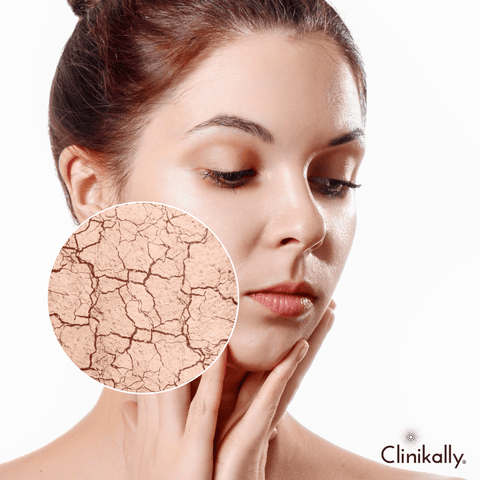
Pollution has been shown to have a substantial impact on the skin barrier and general skin health. The following are some of the ways pollution impacts the skin barrier:
-
Free Radical Damage: Pollution introduces free radicals, which are unstable chemicals that can harm skin cells, hasten ageing, and undermine the skin barrier. The skin's defence mechanisms are weakened as a result of oxidative stress.
-
Inflammation: Pollutants such as particulate matter, heavy metals, and gases can cause skin irritation. Prolonged pollution exposure may cause chronic inflammation, compromising the skin barrier function.
-
Skin Dehydration: Pollutants can deplete the skin's natural oils and moisture, resulting in dryness and dehydration. This lowers the skin barrier, making it more vulnerable to damage and discomfort.
-
Increased Sensitivity: Pollution can cause skin sensitivity, resulting in redness, itching, and irritation. Because of the reduced barrier function, it can aggravate illnesses such as eczema, acne, and rosacea.
-
Accelerated Aging: Long-term pollution exposure can contribute to premature ageing, including the creation of fine lines and wrinkles, and age spots in the skin due to the breakdown of collagen and elastin.
To safeguard the skin's barrier against pollution:
-
Thoroughly cleanse: Use a gentle cleanser to remove pollutants and impurities from the skin without removing its natural oils. In polluted areas, double cleansing may be beneficial.
-
Antioxidant Protection: To neutralise free radicals and protect against pollution-induced damage, use skincare products containing antioxidants such as vitamins C and E, niacinamide, and green tea extract.
-
Barrier-Repairing Ingredients: Incorporate products with barrier-strengthening ingredients such as ceramides, hyaluronic acid, and fatty acids to reinforce and repair the skin barrier.
-
Sun Protection: Use antioxidants in conjunction with sunscreen to protect the skin from UV radiation, which, when combined with pollution, can exacerbate skin damage.
-
Hydration: Use moisturisers that lock in moisture and prevent pollutants from penetrating the skin to keep the skin hydrated.
-
Regular Skincare Routine: Maintaining the integrity and resilience of the skin barrier against environmental stressors can be aided by consistent skincare habits.
-
Protective Measures: When in heavily polluted areas, consider wearing hats, scarves, and other protective clothing to reduce direct exposure to pollutants.
A well-rounded skincare routine paired with preventative measures can help limit pollution's influence on the skin barrier, making it healthier and more resilient. A dermatologist can provide personalised advise on skincare products and routines that are unique to your skin issues and environmental exposure.
Protecting your skin from climatic changes

For your skin to remain resilient and healthy, you must protect it from climatic changes. Different weather conditions can have different effects on the skin, so changing your skincare routine accordingly might help protect it. Here are some suggestions for safeguarding your skin from various weather changes:
-
Cold Weather: To counteract dryness and prevent moisture loss, apply a thicker, more moisturising moisturiser. Wear gloves, scarves, and caps to protect exposed skin from severe winds and cold temperatures. Indoors, use a humidifier to keep proper moisture levels in the air and prevent dry skin.
-
Hot Weather: To avoid clogged pores and keep the skin suitably moisturised, use lightweight, oil-free moisturisers or moisturising serums. Apply SPF 30 or higher sunscreen and reapply frequently, especially if you are sweating or swimming. Wear lightweight, breathable clothing that covers your skin to prevent overexposure to the sun.
-
Humid Environments: To avoid unnecessary oil buildup on the face, use lightweight, non-comedogenic skincare products. To avoid a heavy or greasy feeling on the skin, use oil-free or mattifying sunscreen formulas. Cleaning thoroughly to eliminate sweat, oil, and pollutants that might accumulate in humid circumstances.
-
Dry Environments: Hydrate your skin regularly with moisturisers that contain humectants, such as hyaluronic acid, which attract and hold moisture. To avoid dry, chapped lips, apply lip balm. Consider using a face spray throughout the day to hydrate your skin.
-
Transitioning Seasons: Adjust your skincare routine gradually as the seasons change to accommodate changing environmental circumstances. Use moderate exfoliation to exfoliate dead skin cells that have collected as a result of environmental changes and to aid in product absorption.
-
General Tips for All Climates: Drink plenty of water to stay hydrated and keep your skin moist from within. When necessary, seek cover or shelter to avoid extended exposure to harsh weather conditions. Regardless of the weather, use sunscreen to protect yourself from damaging UV radiation.
Because everyone's skin is unique, it's critical to personalise your skincare routine to your specific skin type and concerns. Furthermore, if you have skin disorders such as eczema or rosacea that are exacerbated by climate change, consulting a dermatologist for personalised guidance can be advantageous. Assessing your skin's condition regularly and changing your skincare routine accordingly can help keep your skin healthy and robust to a variety of climatic challenges.
Advanced Skin Barrier Repair Techniques
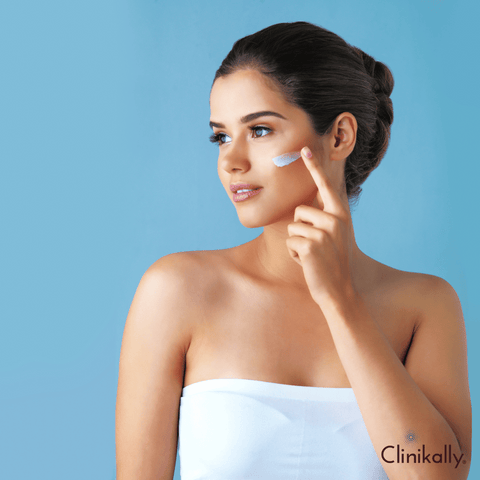
More targeted and specialised ways to restore and strengthening the skin barrier are used in advanced skin barrier restoration treatments. These procedures are frequently indicated for people who have impaired or severely damaged skin barriers as a result of disorders including eczema, psoriasis, dermatitis, or major environmental damage. Some sophisticated techniques include the following:
-
Prescription Topical Treatments: To reduce inflammation and restore the skin barrier, dermatologists may prescribe prescription-strength lotions or ointments containing corticosteroids, calcineurin inhibitors (like tacrolimus or pimecrolimus), or compounds that repair the skin barrier, like ceramides.
-
Barrier Repair Moisturisers: It may be advised to use specially formulated moisturisers that have a high concentration of components that aid in barrier repair, such as ceramides, cholesterol, and fatty acids, to preserve and restore the integrity of the skin barrier.
-
Topical Barrier Lipid Replacement Therapy: These therapies involve applying lipids or liposome-based formulations directly onto the skin to replenish and repair the damaged lipid barrier. These products may contain ceramides, cholesterol, and essential fatty acids.
-
Procedures and Treatments: This technique involves the use of thin needles to create regulated micro-injuries on the skin, which promote collagen formation and aid in the absorption of skincare products that promote barrier restoration. Certain laser treatments can help to restore the skin barrier by stimulating collagen formation and promoting skin healing. For example, fractional lasers target specific parts of the skin to stimulate regeneration. Mild chemical peels can exfoliate the skin's outer layer, increasing cell turnover and improving the absorption of barrier repair components.
-
Advanced Skincare Ingredients: Niacinamide, which is well-known for its anti-inflammatory and barrier-strengthening effects, can be found in higher quantities in serums or creams indicated for skin barrier restoration. These humectants attract moisture into the skin, keeping it moisturised and promoting repair. A natural emollient that replicates the natural oils of the skin, providing hydration and strengthening the skin barrier. Oral Supplements: To support skin health and barrier repair from within, doctors may recommend oral supplements containing vital fatty acids, vitamins, and antioxidants in some circumstances.
Before attempting advanced skin barrier repair techniques, consult with a dermatologist or skincare professional. They can evaluate your skin condition, make an accurate diagnosis, and recommend personalised treatments or products that are tailored to your specific needs. Consistency, patience, and a comprehensive approach involving both professional guidance and a proper skincare routine are essential for effectively repairing a compromised skin barrier.
The role of ceramides in skin barrier restoration
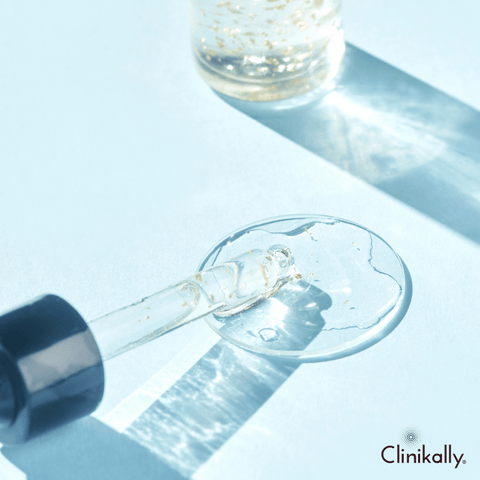
Ceramides are essential for the regeneration and maintenance of the skin barrier. They are key components of the skin's lipid barrier, accounting for approximately 50% of the intercellular lipids in the skin's outermost layer (stratum corneum). These lipids are essential for skin hydration, protection, and barrier function. The skin barrier acts as a barrier, reducing water loss, protecting against environmental stressors, and keeping irritants and allergens at bay. Ceramides, together with other lipids such as cholesterol and fatty acids, form a cohesive structure that strengthens this barrier. Ceramides help to restore the skin barrier in the following ways:
-
Moisture Retention: Ceramides contribute to the skin's natural moisture levels by building a protective barrier that minimises water loss. This hydration is essential for keeping skin soft and preventing dryness.
-
Barrier Function: Ceramides play an important part in the skin barrier's integrity and strength. They aid in the filling of gaps between skin cells, resulting in a tight structure that prevents external aggressors from penetrating and damaging the skin.
-
Skin Repair: When the skin barrier is damaged due to environmental causes, harsh products, or certain skin problems, replenishing ceramides can help heal the barrier. This restoration helps the skin recover from trauma and improves its general health.
-
Anti-Inflammatory Properties: Ceramides are anti-inflammatory, which helps to soothe and calm irritated skin. This characteristic makes them useful for people who have sensitive or reactive skin.
-
Supporting Healthy Skin Aging: Natural ceramide levels in the skin diminish as we age, resulting in drier and more brittle skin. Ceramide-containing skincare products can help replace these levels, promoting healthier and more robust skin as we age.
Utilising ceramide-rich moisturisers or serums—or skincare products made with ceramides—can be very helpful for people with psoriasis, eczema, or sensitive skin. These products can help to improve hydration, repair the lipid barrier in the skin, and improve the general health of the skin. It's important to note that while ceramides are beneficial for most skin types, it's advisable to consult a dermatologist or skincare professional, especially if you have specific skin concerns or conditions, to determine the most suitable products or treatments for your skin.
Innovative skincare technologies for barrier repair

Several revolutionary skincare solutions have evolved in recent years to address barrier restoration and improve skin health. These technologies frequently integrate innovative formulas and cutting-edge chemicals to improve the function of the skin barrier. Novel skincare technologies focusing on barrier restoration include encapsulation technology, ceramide liposome technology, biomimetic formulations, microbiome-friendly skincare, nanotechnology, biotechnological extracts, and epigenetic skincare. When looking for barrier repair skincare products or treatments, it's critical to consider these cutting-edge technologies and formulations. It is, however, recommended that you speak with a dermatologist or skincare specialist to establish the most appropriate and effective products for your skin type, issues, and unique needs. Furthermore, patch testing and gradually integrating new products into your routine are recommended to determine their compatibility with your skin.

































3 comments
Maha
My barrier is damaged due to over cleansing. And I am stang home cause I don’t want to expose myself to uv whith damaged skin barrier.
My barrier is damaged due to over cleansing. And I am stang home cause I don’t want to expose myself to uv whith damaged skin barrier.
Anonymous
My skin barrier barrier is damaged
Please help me
My skin barrier barrier is damaged
Please help me
Pabitraa Das
My skin dry dull damage skin barrier
My skin dry dull damage skin barrier